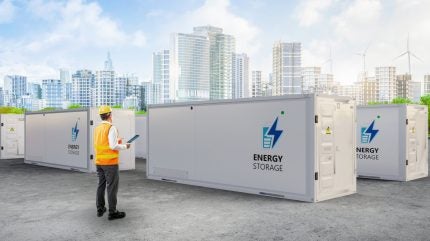
US-based energy storage integrator Powin has partnered with Circulor, a supply chain traceability solutions provider, to introduce battery passports for energy storage systems in grid applications.
Their collaboration focuses on material traceability from source to lithium iron phosphate battery, setting a new standard for responsible sourcing in the battery energy storage system (BESS) market.
The partnership employs Circulor’s traceability technology to monitor the origins and carbon emissions of key materials such as graphite, lithium, aluminium, steel and copper.
The initiative provides proof of material provenance and ensures compliance with Europe’s Batteries Regulation and US import and trade restrictions.
Powin senior vice-president of regulatory affairs Mike Wietecki stated: “The energy transition requires not only advanced technologies but also a firm commitment to responsible sourcing.
“Partnering with Circulor enables us to deliver traceable, transparent energy storage solutions that align with global trade and sustainability standards. This is a pivotal step in building a more ethical and resilient supply chain for the clean energy future.”
Powin’s battery packs for the European market will now include a digital battery passport, accessible via a QR code, exceeding the requirements of Europe’s February 2027 battery passport deadline.
This feature offers Powin’s customers enhanced transparency, allowing for more precise servicing and maintenance of energy storage systems through detailed production information and in-life performance monitoring.
Circulor CEO and founder Douglas Johnson-Poensgen stated: “The BESS market is growing rapidly and it’s clear why — our power systems need the clean, firm power that batteries can deliver.
“While we build out this portion of our energy portfolio, I’m thrilled that Circulor and Powin are showing that supply chain responsibility and circularity are of utmost importance, and achievable through transparency and traceability.”
In October 2024, Powin secured a revolving credit facility of up to $200m, primarily from insurance accounts managed by investment company KKR to boost energy storage growth.



